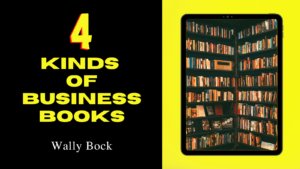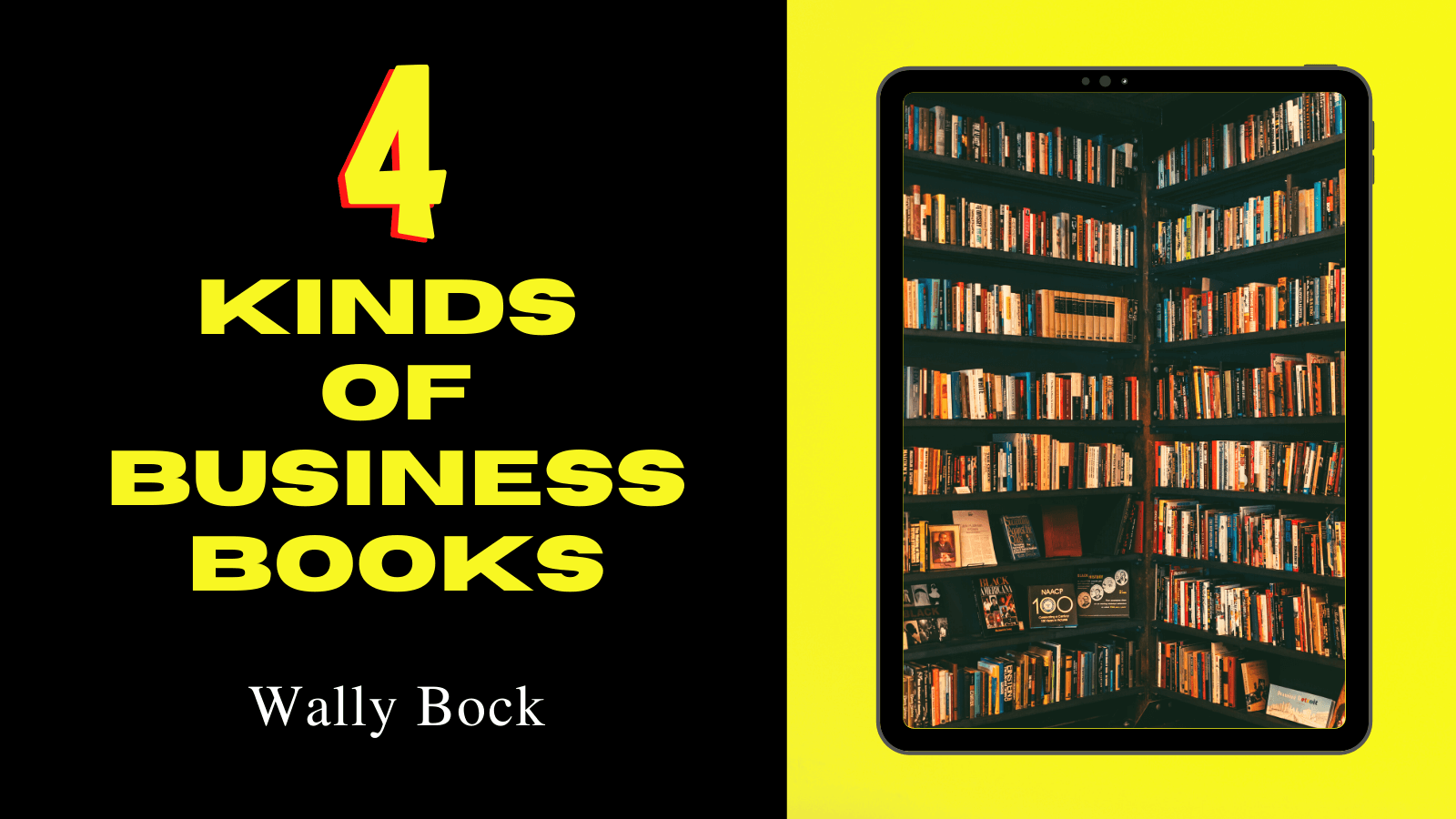 Are you thinking about writing a business book soon? What kind of book will you write?
Are you thinking about writing a business book soon? What kind of book will you write?
There are thousands of business books published every year, but those books fall into only four basic categories. Here’s a review of what they are and what might make them the right kind of book for you to write.
Big-Picture or Boil the Ocean Books
Big-picture or boil the ocean books look at a large, complex issue and analyze it. In a way, they’re a lot like philosophy books. A big-picture book should define the issue, demonstrate how things need to change, and how it’s possible.
A good recent example is the book Humanocracy by Gary Hamel and Michele Zanini.
A big-picture book needs a lot of what I call “William Gibson” examples. They’re based on Gibson’s observation that “the future is already here, it’s just unevenly distributed.” Demonstrate the feasibility and benefits of the change you urge readers to make by showing present-day, real-life examples.
Writing this kind of book requires that you keep detailed reference notes. Business readers will mine your notes section for other things to read.
This is a good book for you if you’re already a recognized expert. They take several years to research and write, so they’re not a good if you want quick results.
Business History Books
A business history book offers historical perspective on an issue or an industry. A good recent example is The Fish That Ate the Whale; It tells the story of the times, actions, and personalities of the United Fruit Company.
This kind of book is mostly the preserve of professional writers. They’re interested in telling a good story, not, necessarily teaching management lessons.
To succeed at one of these, you should include a lot of what I call “I didn’t know that!” stories. That’s going to take some digging and some time.
It’s probably not a good choice for you if you’re like most of my clients and looking to increase your fees and influence.
Personal Experience Books
These are books where the author tells you how it was for him or for her. Some recent examples are The Ride of a Lifetime, That Will Never Work, and Shoe Dog.
Those books are mostly by people who are or who have been CEOs of well-known companies. You may have some interesting experiences that would make a great book. But there’s a problem. Business readers tend to choose their books based on known quantities. They probably won’t take a risk on your story even though it might be a great one.
This book can work for you if you have a compelling story or insight. But you must be willing to throw a ton of effort into promotion.
Single-Purpose Books
Single-purpose business books might be how to do something, like Amy Jen Su’s The Leader You Want to Be. Or they might be about a single topic, like the Heath brothers’ Decisive, or Great by Choice by Jim Collins and Morten Hansen.
Most of my business clients write this kind of book. They come to me with the basic information and knowledge they need to write a compelling book. Some of them want to use the book as a way of developing deep expertise in a subject. These books are good for establishing expertise and boosting reputation and fees.
Pace and order of presentation are important. Business readers tend to stop after the first chapter or two unless you pull them along.
Every point you make should have two kinds of support. You need concrete examples of the point being applied. You also need surveys or studies (research) that support the points you make.
Finally, you need to do things that business readers like in their books. Charts, graphs, and graphics are a big plus. Chapter summaries, action steps, thinking points, or exercises help make the book useful. You may want to develop some action aids that you put on your website or on an available PDF.
Single-purpose books are excellent for building visibility, reputation, and income.
Takeaways
There are four basic kinds of business books.
Big picture/boil the ocean books suggest how and why an important aspect of business should change.
Business history books present an overview of an issue or industry with a historical perspective.
Personal experience books share the story of a prominent person or company.
Single-purpose books describe how to do one important thing well.
Note: All links to Amazon are affiliate links.
